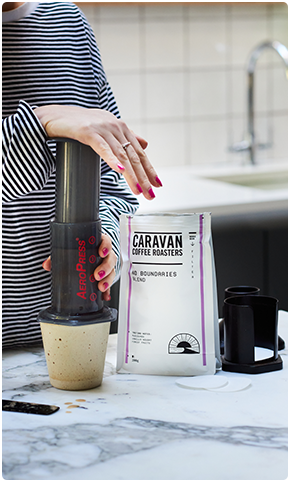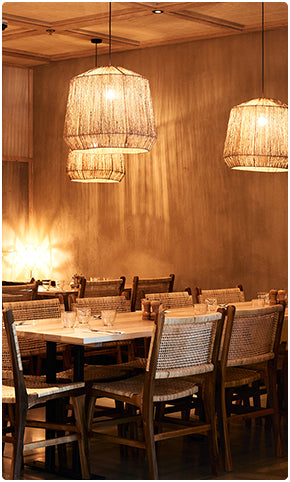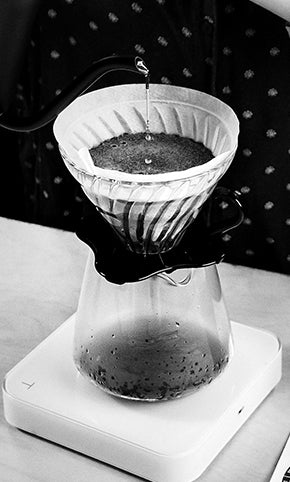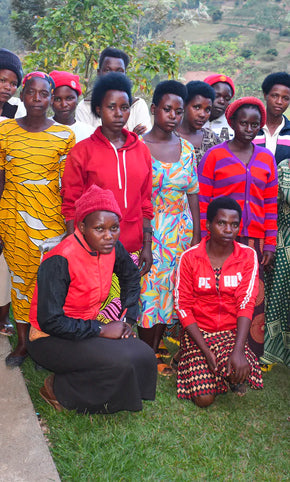Written by Andrea Otte, CCR Head of Coffee
Caravan’s Female Producer Program, begun in January 2021, recognises the crucial role that women’s labour plays in coffee production, work both on and off the farm, paid and unpaid. As a company which values gender equity and the role of women within our own organisation, we acknowledge that there is often a ‘double-bind’ for women, here and abroad, where the demands of family and home care add additional hours and activities to women’s labour as opposed to men’s. Additionally, within coffee production centres and in export organisations, women often are less represented in leadership and employment, where opportunities to voice specific needs for women and children are possible.

Pictured: Members of Jovemcafe, a women’s cooperative in Guatemala, in February, 2022
The idea for the program started by elevating the stories of female producers through sourcing coffees for our customers here in the UK. Over the past several years, by learning more about the challenges many of these women faced, what was a simple buyer’s preference has evolved into a dedicated program. Now, in 2022, the goals of the program, achieved via two main actions detailed below, are to increase participation and representation of women amongst the cooperatives and export organisations in producing countries where we work. By cultivating long-term trading relationships with open communication and support for women’s coffee products, the aim is to centralise the role of women’s coffee products and women’s representation – and ultimately power – within cooperatives and export organisations.
One challenge of this project is to align our business’s actions with an information-based strategy for researching and reviewing the impact of the program’s two main pillars. These pillars are, simply put: a commitment to purchasing 50% of our coffee from female farmers, and a donation of 10p per kilo from the sale of women’s coffee to charities supporting gender-focussed work in coffee growing communities.

Pictured: Packing coffee in Honduras
Photo credit: Beneficio San Marcos
Our aim to make a positive contribution through this program can only be quantified with a level of baseline data on who we are sourcing from, what benefits they receive from their sales of women’s coffee, what benefits they perceive from the sale of women’s coffee, and whether there are other impacts we haven’t quantified, such as strengthened relationships between Caravan and cooperative leadership. This data will be collected year on year in order to transparently record any possible impact – positive or negative – that the program is having.
Additionally, at the end of each calendar year, we will record of how much money is donated from the 10p per kilo commitment, and to whom, as well as what activities those donation funds have had on the charity’s ability to fund its own programs and activities.
The goals of the Female Producer Programme are to have, at minimum, a modest positive impact on women’s participation and representation within their cooperative organisations by encouraging a long-term market for women’s coffee products, the sale of which increases profitability for female producers. Our supporting goal is to fund charities/NGOs who work on issues related to gender within coffee communities, by raising money via our 10p per kilo fund. These two combined goals acknowledge that gender work extends beyond the women and organisations we have direct contact with, or even those who farm coffee exclusively – it is part of a systems change at a local level which raises the voices and opportunities for every person, regardless of gender.

Pictured: Members of Sholi Womens Association
During the past eight months, Andrea, our Head of Coffee, had the privilege of visiting several of the women from whom we source coffee, in Guatemala in February and in Rwanda this June. The relationships we have in both these countries – with Primavera Coffee in Guatemala and with Sholi Cooperative in Rwanda – are some of our most treasured. Read on for updates on two of the groups we are supporting this year:
In Guatemala, Andrea visited with members of JOVEMCAFE, a group of women near the town of Concepción Huista, in the region of Huehuetenango. Through our partnership with The Chain Collaborative, and with the support of import partner Primavera Coffee, we have been funding an incubator project which the women of JOVEMCAFE have designed and are in the process of implementing. This two-year project centres on the creation of a seedling nursery which will be used for both coffee tree seedlings for the group’s members as well as shade tree seedlings. These native shade tree seedlings will be distributed to help create better natural environments for species diversity and conservation, as well as to shade coffee trees and avoid topsoil erosion. The incubator project will also see the creation of an organic fertiliser system, a vital resource that has become increasingly valuable this summer as the price of fertilisers has dramatically increased.
In Rwanda, Caravan has been purchasing coffee from Sholi Cooperative for the past three years, increasing our commitment year on year. In 2021, we purchased nearly a full container of coffee from the coop’s women’s association, including coffees for our flagship espresso blend, Market Blend, as well as our No Boundaries filter blend. Sholi’s women’s association is made up of 70 female coffee producers who started the group in 2019 to support activities such as a rotating savings and loans program and handicrafts production. The group’s main activity is farming their collectively owned plot of land, where the majority of Caravan’s coffee is grown. All members work each Saturday on the group’s plot of land where they grow vegetables as well as coffee. All proceeds from the coffee, as well as the harvest from the vegetable plot, are shared collectively.
This inspiring and very well organised group met with our Head of Coffee in June to discuss this year’s harvest as well as get a better idea of the women’s aspirations for next year. With big goals in mind and a strong foundation of collective leadership and transparency, we have no doubt that the association will continue to achieve success with their projects and good premiums for their coffee.






